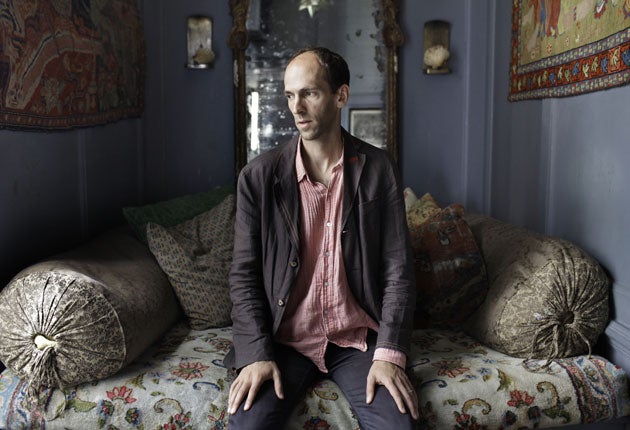Your support helps us to tell the story
From reproductive rights to climate change to Big Tech, The Independent is on the ground when the story is developing. Whether it's investigating the financials of Elon Musk's pro-Trump PAC or producing our latest documentary, 'The A Word', which shines a light on the American women fighting for reproductive rights, we know how important it is to parse out the facts from the messaging.
At such a critical moment in US history, we need reporters on the ground. Your donation allows us to keep sending journalists to speak to both sides of the story.
The Independent is trusted by Americans across the entire political spectrum. And unlike many other quality news outlets, we choose not to lock Americans out of our reporting and analysis with paywalls. We believe quality journalism should be available to everyone, paid for by those who can afford it.
Your support makes all the difference.Is Benjamin Markovits contemporary fiction’s best-kept secret? His previous novel, Childish Loves (2011), the final instalment in his trilogy about Lord Byron, was haunting, but he’s difficult to define: a London-based Texan, who’s best known for writing about Romantic poets, and selected as one of Granta’s Best of Young British Novelists.
Markovits’s seventh novel is as profound a meditation on contemporary America as you’re likely to read this year. His oeuvre straddles centuries, continents, and genres, so it’s fitting that his latest protagonist, Greg “Marny” Marnier, exists on the peripheries between cultures and communities.
Recent tragedies in Charleston, Ferguson, and elsewhere demonstrate that something is rotten in America, and Detroit has long symbolised its urban dysfunction. Marny is drifting through his thirties when his former Yale classmate, dotcom multi-millionaire Robert, buys thousands of low-priced houses in Detroit and begins a renewal project amid the city’s ruins. Robert envisages “the kind of small-town community that we still associate with the founding of this country”, so he, Marny, and a group of their friends are soon living as “new frontiersmen” in Detroit.
Why are these bright young Americans prepared to drop everything and move to a bankrupt city? Because they’ve discovered that, in an era of recession, all their privilege buys them is their place in a soul-sucking rat race, and they’re seduced by Robert’s utopian spiel. What about native Detroiters? “They don’t want you living here,” says Tony, a journalist with roots in the city’s white working class. As others join Robert’s experiment, Detroit becomes the arena for conflict between those who don’t know what to do with themselves, and those who are truly disenfranchised.
At times disturbing but very moving, this serious and rewarding book speaks to our present moment. From basketball court to courthouse, it’s like a season of The Wire scripted by J M Coetzee. But Markovits’s work warrants more than flippant soundbites. He writes with precision about the way individuals relate to places, race, children, and even pulls off a cameo from Barack Obama. I was immersed in Marny’s world and shared his uncertainty about how to interpret events when tensions that had boiled beneath the surface eventually erupt. Like the lives it describes, this novel contains multitudes.

Join our commenting forum
Join thought-provoking conversations, follow other Independent readers and see their replies
Comments